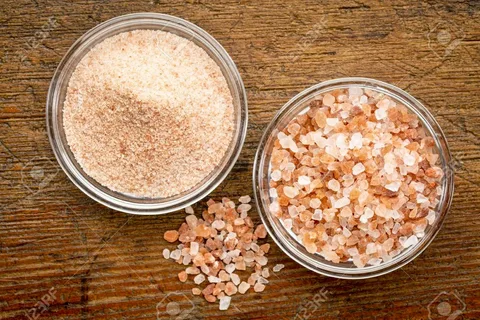Diabetes is a chronic disease that affects millions worldwide, characterized primarily by high levels of glucose in the blood. Managing diabetes often involves lifestyle changes, medication, and monitoring blood sugar levels. In the search for natural treatments, Chinen salt has recently gained attention as a potential aid in managing diabetes. This comprehensive guide explores the nature of Chinen salt, its purported benefits, its effectiveness, and how it should be incorporated into a diabetes management plan.
What is Chinen Salt?
Chinen salt is not your typical table salt (sodium chloride). It is actually a form of berberine chloride, a compound found in various plants like Berberis vulgaris and Coptis chinensis. Historically used in Chinese medicine for its antimicrobial and anti-inflammatory properties, Chinen salt has recently been promoted as a natural treatment for diabetes.
Chemical Composition of Chinen Salt
Chinen salt primarily contains berberine chloride but also includes other minerals such as magnesium, zinc, and iron. Berberine itself is known for its broad therapeutic effects, which are thought to be the basis for most of Chinen salt’s health claims.
How Chinen Salt is Thought to Affect Diabetes
Increasing Insulin Sensitivity
Berberine has been shown in some studies to improve insulin sensitivity by influencing glucose metabolism, which can help lower blood sugar levels.
Promoting Glucose Metabolism
It might enhance the glycolysis process, which helps break down glucose inside cells, providing energy and reducing blood glucose levels.
Suppressing Glucose Production in the Liver
Berberine can help decrease glucose production in the liver, a key process in managing high blood sugar.
Improving Gut Health
There is evidence suggesting that berberine can improve the gut microbiota, which plays a role in metabolic regulation and thus could impact diabetes management.
Research and Evidence
While traditional use and preliminary studies suggest potential benefits of berberine for diabetes management, most research has not specifically focused on Chinen salt but rather on berberine itself. Clinical trials have shown that berberine can be effective in lowering blood glucose levels in people with type 2 diabetes to a degree comparable to some conventional diabetes drugs.
Usage and Dosage
When considering the use of Chinen salt for diabetes management, it is crucial to approach this as a supplement rather than a primary treatment. Most studies recommend a dosage of berberine ranging from 900 to 1500 mg per day, divided into three doses, which corresponds to the most effective and safe intake observed in clinical trials. However, Chinen salt should not be used as a direct substitute for prescribed diabetes medication unless under the guidance of a healthcare provider.
Side Effects and Considerations
Chinen salt, or berberine, can cause some side effects, such as gastrointestinal discomfort, constipation, and abdominal pain. It may also interact with various medications, especially those that are processed by the liver. It is crucial for anyone considering Chinen salt for diabetes to consult with a healthcare professional to ensure safety, particularly regarding interactions with other medications.
Integration into Diabetes Management
Chinen salt should be seen as one component of a comprehensive diabetes management plan, which includes a healthy diet, regular physical activity, ongoing monitoring of blood glucose levels, and regular healthcare consultations. Here are some guidelines:
Balanced Diet
Incorporate a variety of nutrients, focusing on fiber-rich fruits and vegetables, lean proteins, and whole grains.
Regular Exercise
Aim for at least 150 minutes of moderate aerobic activity or 75 minutes of vigorous activity each week.
Monitoring
Keep track of blood glucose levels as recommended by a healthcare provider.
Consultation
Regularly review medication needs, lifestyle adjustments, and supplementation with a healthcare provider.
FAQs about Chinen Salt for Diabetes
Is Chinen salt a cure for diabetes?
No, Chinen salt is not a cure for diabetes but may help manage blood glucose levels as part of a broader treatment plan.
How quickly does Chinen salt affect blood sugar levels?
Effects on blood sugar levels can vary, but some studies show improvements within a few weeks of consistent berberine supplementation.
Can I replace my diabetes medication with Chinen salt?
No, you should not replace any prescribed medication with Chinen salt without consulting your healthcare provider.
Are there any people who should avoid taking Chinen salt?
Individuals with conditions affecting the liver or kidney, or those who are pregnant or breastfeeding, should avoid using Chinen salt. Always consult a healthcare provider before starting any new supplement.
How should Chinen salt be taken for the best results?
For best results, Chinen salt should be taken with meals to help manage blood sugar spikes post meals. Ensure to adhere to the recommended dosage and consult a healthcare provider.
Can taking Chinen salt lead to low blood sugar levels?
While uncommon, there is a potential risk of hypoglycemia, especially if taken with other diabetes medications. Monitoring blood sugar levels and consulting with a healthcare provider can help manage this risk.
Where can I purchase Chinen salt?
Chinen salt is available in some health food stores, online marketplaces, and stores specializing in dietary supplements.
Conclusion
Chinen salt may offer a complementary approach to managing diabetes, particularly through its active component, berberine. However, it is important to use it as part of a comprehensive diabetes management plan and under the guidance of a healthcare provider. As research continues, further understanding will hopefully elucidate the full potential and limitations of Chinen salt in diabetes care.
- Xela Rederm Skin Booster Treatments Near Weybridge, Surrey - January 12, 2025
- Traptox Aka Trapezius Botox Treatment Near Gatton, Surrey - January 10, 2025
- Skin Injectables Near Shamley Green, Surrey - January 7, 2025




